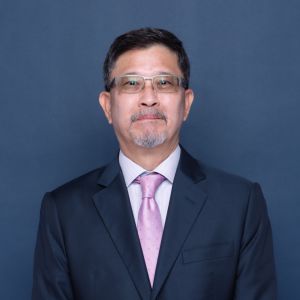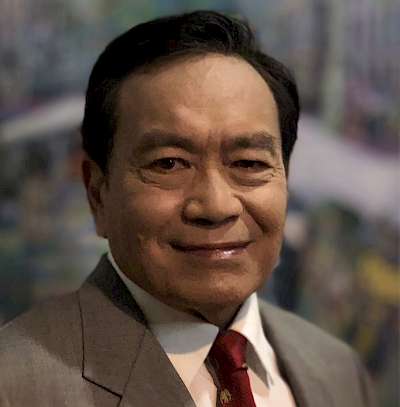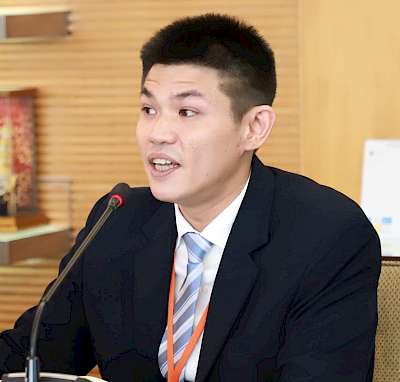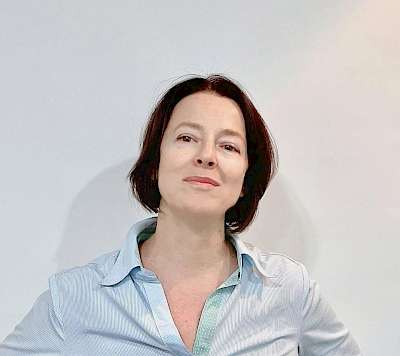Localising the Circular Economy Concept under ASEAN Values
Background:
Circular Economy has become immensely important for ASEAN as the region intensifies its efforts to decouple economic growth from environmental footprints. As a region of vibrant and boundless diversity, encompassing the distinct cultural, social, economic, and environmental landscapes of the 10 ASEAN Member States—from unique histories, ethnicities, religions, and traditions, to individualized geographical, political, and economic contexts of each nation—many interpretations of circular economy have emerged as the concept is ‘localized’ through various national practices. How the circular economy is interpreted is strongly influenced by the practice context, including business, communities, and civil society, and also by Southeast Asian values with their own cultural and belief systems, along with particular challenges and opportunities.
In Thailand, for example, the circular economy might be reflected through the Sufficiency Economy, a local philosophy based on the fundamental principles of moderation, prudence, and social immunity by using knowledge and virtue to live more independently with contentment. This philosophy stems from Theravada Buddhism. Sufficiency philosophy can assist in the acceptance of circular economy principles, with which it shares the recognition of resource limitations. It can promote sustainable practices by reducing resource extraction and lessening environmental impacts such as pollution, waste generation, and nature degradation.
Similarly, in Vietnam, the values of Tích trữ (Thrift) and Trân trọng thiên nhiên (Respect for Nature) share many common principles supporting the introduction of the circular economy in the country. Tích trữ emphasizes making the most out of available resources and encourages extending the lifecycle of goods through durable product consumption, reducing replacements, repairing products, minimizing waste, and reusing materials and second-hand products. Trân trọng thiên nhiên values the natural environment and resources as essential to life and therefore promotes environmental stewardship, natural resource conservation, and biodiversity protection through fostering a sense of responsibility.
In the Philippines, there are related common values called Kapwa (shared responsibility), Diskarte (resourcefulness), Paggalang (respect for others), Kalikasan (nature and the world), and Utang na loob (gratitude and reciprocity) that align with the circular economy. Kapwa emphasizes community and collective action. Diskarte encourages creativity and innovation in finding ways to maximize the use of resources, minimize waste, and find new purposes for discarded materials. Paggalang promotes ethical behavior, consideration for others, and doing no harm to the community. Kalikasan fosters a deep respect for the environment, driving efforts to protect natural resources and reduce environmental impacts. Utang na loob instills a sense of responsibility to give back and maintain balance.
Indonesia, Malaysia, and Singapore also have the Gotong Royong tradition. In Javanese, Gotong—shared burden—and Royong—communally—together translate to mutual cooperation to realize a shared goal. Gotong Royong instills an individual’s obligation or responsibility towards society, promoting and reciprocating communal work in a community. The tradition generally involves cleaning, sweeping, picking up garbage, or cleaning drainage, but it can also extend to farming labor, clearing fields, construction, contributing to large celebrations, etc. The tradition encourages a sharing economy through sharing skills, labor, and resources, and further promotes sustainable agriculture and local food production, waste management, community resilience, and reducing dependency—much like the circular economy.
These are just some examples of how the circular economy concept can be further localized and translated into on-the-ground implementations through the lens of ASEAN’s contexts and values. This webinar will showcase examples from many countries in the region to compare similarities and differences in circular economy approaches among countries, as well as to understand how these values can complement and support the achievement of a circular economy.
About the ASEAN Circular Economy Stakeholder Platform Webinar Series
The webinar series, hosted by the ASEAN Circular Economy Stakeholder Platform and co-hosted by the EU SWITCH-Asia Policy Support Component, is strategically designed to foster the adoption of Sustainable Consumption and Production (SCP) practices in the context of the Circular Economy (CE) across the ASEAN region. Recognising the need for a comprehensive approach addressing both supply and demand aspects and bringing together diverse stakeholders, these webinars intend to raise awareness, promote understanding, and facilitate an inclusive dialogue on making the circular economy a tangible reality in the ASEAN region. Thereby, the series aims to strengthen networks and knowledge exchanges among institutions working towards shared sustainability goals.
Chairs and Moderators

Chirachai Punkrasin, Executive Director, ASEAN Circular Economy Stakeholder Platform
Chirachai Punkrasin joined the ASEAN Centre for Sustainable Development Studies and Dialogue in April 2022 as Executive Director. He began his Foreign Service career working on ASEAN issues at the Foreign Ministry’s Department of ASEAN Affairs and then moved to the then Department of Political Affairs where he worked on Thailand’s relations with the Soviet Union and Eastern Europe. He worked on multilateral economic issues during several assignments to the Department of International Economic Affairs. He served as Director-General of the Department of American and South Pacific Affairs from 2009 to 2012 where he was responsible for overseeing Thailand’s relations with the countries in North America, Central America and the Caribbean, South America and the South Pacific.

Anthony Pramualratana, ASEAN Circular Economy Stakeholder Platform
In July 2022, Dr. Anthony Pramualratana assumed the role of Deputy Executive Director at the ASEAN Centre for Sustainable Development and Studies Dialogue (ACSDSD). The ACSDSD garnered support from leaders during the 34th ASEAN Summit in Bangkok in June 2019 and was officially launched at the 35th ASEAN Summit in Bangkok in November 2019. Its primary objective is to advance research on specific sustainable development issues of mutual interest and facilitate dialogue among ASEAN Sectoral Bodies, Dialogues, and external partners, employing a comprehensive and cross-cutting approach. In September 2022, Dr. Pramualratana played a key role in establishing the ASEAN Circular Economy Stakeholder Platform, a regional facility aimed at helping ASEAN Member States (AMS) achieve sustainable consumption and production by accelerating the transition towards a circular economy.

Treesuvit Arriyavat (David), Project Manager, ASEAN Circular Economy Stakeholder Platform
David is a PhD candidate in Management at the College of Management, Mahidol University, Bangkok, Thailand. He holds significant experience in managing projects within the ASEAN context. Currently, David serves as the project manager for the ASEAN Circular Economy Stakeholder Platform (ACESP) at the ASEAN Centre for Sustainable Development Studies and Dialogue (ACSDSD) at Mahidol University, Bangkok. In this capacity, he is responsible for establishing and overseeing the day-to-day operations of the ACESP Secretariat. This role encompasses various tasks, including project coordination, management of the knowledge and information portal, as well as communication and outreach efforts.

Zinaida Fadeeva, Team Leader, SWITCH-Asia Policy Support Component
Zinaida Fadeeva is the Team Leader of the Policy Support Component of the SWITCH-Asia Programme. Zinaida has over 25 years leading international professional experience in policy for and practice of sustainable consumption and production (SCP) and Education for Sustainable Development, amongst others working with the United Nations University Institute for the Advanced Studies of Sustainability (UNU-IAS). Her work has focused on diverse topics such as tourism, plastics, construction, small and medium enterprises, procurement and lifestyle. Zinaida has worked extensively with governments, private sector, international organisations and academia in East, South East, South and Central Asia.
Agenda
|
9 August 2024 |
|
|
15:00 |
Introduction to the ASEAN Circular Economy Stakeholder Platform Chirachai PUNKRASIN and Treesuvit ARRIYAVAT (David),ASEAN Circular Economy Stakeholder Platform |
|
15:05 |
The Role of Culture and Local Values on Sustainable Development and SDGs |
|
15:15 |
Presentation of circular economy principles and practices Panel Discussion: ASEAN Values on the Interpretation of Circular Economy Moderated by Anthony PRAMUALRATANA, Deputy Director at the ASEAN Circular Economy Stakeholder Platform |
|
16:00
|
Q&A |
|
16:30 |
Concluding remarks and next steps Zinaida FADEEVA, Team Leader at the SWITCH-Asia Policy Support Component Treesuvit ARRIYAVAT (David), ASEAN Circular Economy Stakeholder Platform |
- When Aug 09, 2024 from 03:00 PM to 04:30 PM (Asia/Bangkok / UTC700)
- Where Online
- Web Visit external website
-
Add event to calendar
iCal
